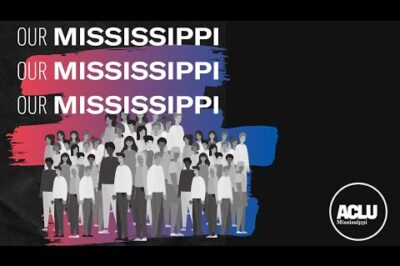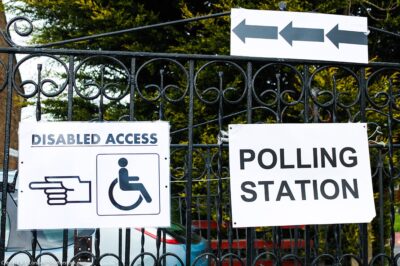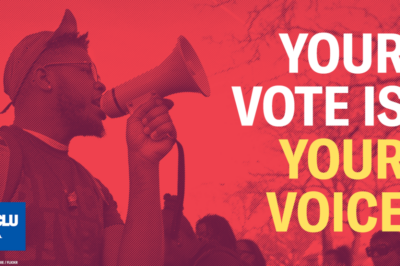ACLU Files Lawsuit to Restore Right to Vote for Former Felons in Arizona
FOR IMMEDIATE RELEASE
CONTACT: media@aclu.org
PHOENIX – The American Civil Liberties Union of Arizona and the ACLU Voting Rights Project today filed a lawsuit seeking to restore the voting rights of Arizona citizens who have completed prison terms for felony convictions but are denied their civil rights because they owe money to the state or because they committed certain types of felonies.
“Citizens should never be stripped of their basic rights, and the right to vote is as fundamental a right as there is in a democracy,” said ACLU of Arizona Executive Director Alessandra Soler Meetze. “By stripping former felons of their voting rights, our government is shutting them out of American political life and reducing their prospects for successful rehabilitation into our communities. And that hurts us all.”
Under current state law, everyone who commits a felony is stripped of their civil rights, including the right to vote, serve on a jury and run for some public office. Individuals can’t restore those civil rights – even after being released from prison – unless they’ve paid all of their legal financial obligations to the state, including docket and filing fees, court costs, restitution, and costs of incarceration, as well as interest on these debts.
The ACLU argues in today’s complaint that denying the right to vote based on a citizen’s financial ability is the modern equivalent of a poll tax and violates the 14th Amendment, which prohibits the government from treating certain groups of people unfairly. The ACLU is not asking the court to change criminal sentences or eliminate debts owed by people who have committed felonies.
Three of the five plaintiffs in today’s lawsuit – Armando Coronado of Tucson and Joseph Rubio and Michael Garza of Phoenix – would like to vote but are prevented from doing so because they are unable to pay off their legal debts. They owe a combined total of about $6,000, plus accrued interest, in outstanding legal debt to the state.
“Even when people have completed their prison time and have been released back into society, our state puts up barriers to voting – barriers that are based strictly on economics,” said ACLU of Arizona Legal Director Daniel Pochoda.
Arizona’s felon voting ban is one of the strictest in the nation, with one of every 23 citizens unable to vote. The state maintains the eighth highest rate of disfranchisement in the nation. An estimated 176,103 persons are disfranchised in the state as a result of a felony conviction. Forty-four percent of these persons have completed their sentences.
The proportion of the population that is disfranchised by the state’s felon voting ban has been exacerbated in recent years by the government’s misguided “war on drugs,” which has led to an overrepresentation of non-violent drug offenders in the Arizona prison system, said the ACLU.
In today’s complaint, the ACLU also challenges the denial of the right to vote for the great number of persons convicted of drug offenses in Arizona. The ACLU argues that Congress only intended to allow the disfranchisement of felons convicted of serious “common law felonies” such as murder and treason. There is no constitutional provision or exception that would allow automatic loss of basic voting rights for drug related crimes or other acts that are not considered felonies.
“Throughout recent years, it has become common practice for states to expand the list of disfranchising felonies and the end result is that thousands of people are losing their political voice and being deliberately shut out of the democratic process,” said Nancy Abudu, a staff attorney with the national ACLU Voting Rights Project in Atlanta.
The two other plaintiffs in today’s lawsuit – Michele Convie and Raymond Lewis, Jr. of Tucson – would like to vote in the November 2008 elections, but remain ineligible because of their previous drug convictions.
“This is an unjust law that is completely counter to everything this country stands for,” said Michele Convie, a grandmother and founder of the Tucson-based Women’s Re-Entry Network. “For the past 20 years, I have contributed to my community by paying taxes and owning property, yet I have no say in how my government runs, even on issues relating to my grandchildren’s education. By November 2008, I hope to be able to cast a ballot and have a real voice in my community.”
Raymond Lewis, Jr., who was convicted of drug crimes, faces a similar hurdle to voting. In order to restore his rights, he must go through an onerous judicial restoration process, where a judge has final say on whether he is able to restore his voting rights. The process is intimidating and arbitrary, which is why few people actually go through the judicial restoration process, said the ACLU.
“I’m lucky in that my family has been very supportive of me and I’m very thankful for that,” Lewis said. “If my family can accept me and forgive me for the mistakes I’ve made in the past, then why can’t my government? How can the government – complete strangers – continue to take my voting and civil rights away even after I’ve served my time and rehabilitated my life?”
The lawsuit, Coronado et al. v. Napolitano et al., was filed today in federal district court in Phoenix. The case – CV 07-1089 PHX-SMM – has been assigned to the Honorable Stephen M. McNamee. In addition, to Pochoda and Abudu, ACLU Voting Rights Project Director Laughlin McDonald and Associate Director Neil Bradley also are attorneys in this case.
The ACLU successfully challenged a similar provision in Washington preventing citizens from voting unless they’re able to pay off their legal debt. In a lower court decision, the judge found that the provision linking rights restoration to the payment of fees is unconstitutional under the 14th Amendment. That case is currently pending before the Washington Supreme Court.
For more information on the ACLU’s public education, legal and legislative efforts on ex-felon voting rights, go to: www.aclu.org/votingrights/exoffenders/index.html
Today’s complaint is online at: www.acluaz.org/News/PressReleases/PDFs/Microsoft%20Word%20-%20Coronado%20v%20%20Napolitano%20Complaint.pdf
Stay Informed
Every month, you'll receive regular roundups of the most important civil rights and civil liberties developments. Remember: a well-informed citizenry is the best defense against tyranny.




